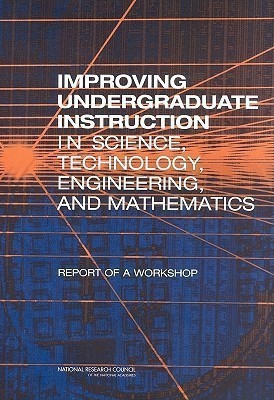Improving Undergraduate Instruction in Science, Technology, Engineering, and Mathematics(English, Paperback, National Research Council)
Quick Overview
Product Price Comparison
Participants in this workshop were asked to explore three related questions: (1) how to create measures of undergraduate learning in STEM courses; (2) how such measures might be organized into a framework of criteria and benchmarks to assess instruction; and (3) how such a framework might be used at the institutional level to assess STEM courses and curricula to promote ongoing improvements. The following issues were highlighted: Effective science instruction identifies explicit, measurable learning objectives. Effective teaching assists students in reconciling their incomplete or erroneous preconceptions with new knowledge. Instruction that is limited to passive delivery of information requiring memorization of lecture and text contents is likely to be unsuccessful in eliciting desired learning outcomes. Models of effective instruction that promote conceptual understanding in students and the ability of the learner to apply knowledge in new situations are available. Institutions need better assessment tools for evaluating course design and effective instruction. Deans and department chairs often fail to recognize measures they have at their disposal to enhance incentives for improving education. Much is still to be learned from research into how to improve instruction in ways that enhance student learning.Table of Contents Front Matter 1 Introduction 2 Identifying Desired Student Learning Outcomes 3 Evaluating Effective Instruction 4 Promoting Effective Instruction at Departmental and Institutional Levels 5 General Discussion 6 Epilogue References A Commissioned Papers B Reference Paper C Workshop Agenda D Workshop Participants E Biographical Sketches of Workshop Attendees


